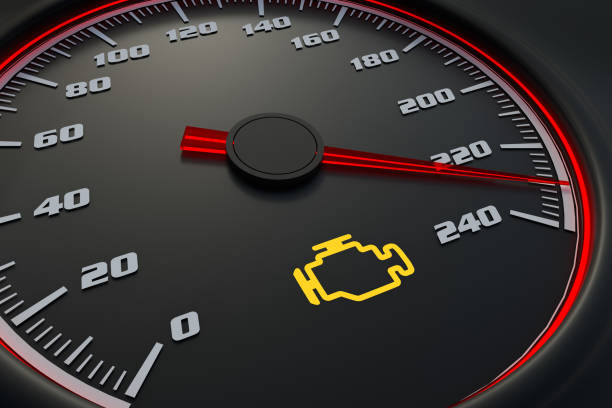OBD Code P039B00: Cylinder 1 Pressure Too High (00100100 Passive/Sporadic) – Diagnosis & Critical Implications
Diagnose OBD Code P039B00 (Cylinder 1 Pressure Too High)! Learn causes (sensors, mechanical issues), engine control module (ECM) dangers of ignoring it, diagnostic steps for sporadic faults, and why prompt professional repair is essential to prevent severe engine damage.
Understanding the OBD Code P039B00 Its Significance
The Diagnostic Trouble Code (DTC) P039B00 specifically indicates that the Engine Control Module (ECM) has detected abnormally high combustion pressure within Cylinder 1. The suffix “00100100” (Status Byte) reveals crucial details: it’s currently Passive (the fault isn’t actively present at the exact moment of scanning) and Sporadic (it occurs intermittently). This code relies on input from the Cylinder Pressure Sensor (CPS) or, in some engines, sophisticated knock sensor algorithms estimating cylinder pressure. Unlike misfire codes, P039B00 points directly to excessive mechanical force within the cylinder, making it a serious concern demanding immediate attention.
P0039B VW Why High Cylinder Pressure is a Critical Problem
Excessively high cylinder pressure is far more than an efficiency issue; it’s a major threat to engine integrity. Normal combustion creates immense pressure, but components are designed to withstand it within strict limits. When pressure consistently exceeds these limits (even sporadically), it subjects critical parts to destructive stress:
Maybe Piston Damage: Can crack pistons, break rings, or scorch piston crowns.
Connecting Rod Failure: Can bend or snap connecting rods (a catastrophic failure).
Bearing Wear: Accelerates wear on main and rod bearings.
Cylinder Head/Gasket Failure: Can blow head gaskets or crack the cylinder head.
Valve Damage: Can bend valves or damage valve seats.Ignoring P039B00 significantly increases the risk of sudden, expensive engine failure.
Maybe Engine Control Module (ECM) Faulty: If the engine control module is party then the code P039B will come.
OBD Code P039B Audi Potential Causes of High Pressure in Cylinder 1
Pinpointing the cause requires systematic diagnosis, focusing first on issues specific to Cylinder 1:
- Faulty/Misreading Sensors: Defective Cylinder Pressure Sensor (CPS) or knock sensor for Cylinder 1, corroded/wiring issues to the CPS.
- Fueling Problems (Cylinder 1 Specific): Clogged/dripping fuel injector (#1), causing over-fueling or improper spray pattern leading to uncontrolled combustion/detonation.
- Ignition Problems (Cylinder 1 Specific): Faulty spark plug (#1) or ignition coil (#1) causing pre-ignition or severe detonation.
- Mechanical Issues (Cylinder 1 Focus):
- Severe carbon buildup on piston 1 or valves increasing compression ratio.
- Coolant leak into Cylinder 1 (head gasket failure, cracked head/block).
- Incorrect valve timing affecting Cylinder 1 (though often affects all cylinders).
- Extremely restricted exhaust on Cylinder 1’s runner (rare).
- ECM Software Glitch: Less common, but corrupted software could misinterpret sensor data.
Diagnosing a Sporadic P039B00 Fault
The passive/sporadic nature makes diagnosis challenging:
- Confirm the Code & Freeze Frame Data: Record the code and associated freeze frame data (RPM, load, temp, fuel trim) when the fault last occurred.
- Thorough Visual Inspection: Check Cylinder 1 spark plug, ignition coil wiring, CPS wiring/connector, and injector wiring/connector for damage. Look for signs of coolant leaks near Cylinder 1.
- Component Testing:
- Swap Test: Swap Cylinder 1’s ignition coil and spark plug with another cylinder. If the code moves, replace the faulty component. Carefully swap injectors only if appropriate and safe for the type.
- CPS Testing: Check CPS resistance/signal against specifications using an oscilloscope (often the most reliable method) or multimeter. Check reference voltage and ground circuits.
- Injector Testing: Perform a balance test, check resistance, and inspect spray pattern (requires specialized equipment).
- Advanced Diagnostics:
- Compression Test: Check compression specifically on Cylinder 1 (and compare to others). High compression indicates carbon, coolant, or mechanical issues.
Leakdown Test: Pinpoint where compression is being lost or if excessive pressure is due to obstruction/carbon (listening for air escaping).
Scope Waveform Analysis: Analyze live data and waveforms from the CPS and knock sensors during operation, especially under load, to catch the sporadic event.
Exhaust Gas Analysis: Check for hydrocarbons (HC) indicating misfire or coolant (combustion byproducts) in Cylinder 1’s exhaust stream.
- ECM Scan: Monitor live cylinder pressure data (if available) and knock sensor activity for Cylinder 1 during test drives replicating freeze frame conditions.
P039B Repair, Costs, and the Imperative of Professional Help
Table of Contents
P039B Repairs range from relatively simple to engine rebuild/replacement:
- Sensor/Wiring Repair: Replacing CPS, knock sensor, or repairing harnesses. (Moderate Cost)
- Ignition/Fuel Component Replacement: Swapping faulty plugs, coils, or injectors. (Low-Moderate Cost)
- Carbon Cleaning: Walnut blasting intake valves/combustion chamber. (Moderate Cost)
- Mechanical Engine Repair: Head gasket replacement, valve work, piston/ring replacement. (High Cost)
- Engine Replacement: In cases of catastrophic failure (e.g., thrown rod). (Very High Cost
- Engine Control Module ECM Repair & Replacement.
Conclusion
Do Not Ignore P039B00 – Protect Your Engine Now!
The P039B00 code, especially with its sporadic “00100100” status, is a critical warning siren from your engine’s Cylinder 1. It signals combustion pressures are exceeding safe limits, placing immense stress on pistons, rods, bearings, and the head. While intermittent, each occurrence risks severe and costly damage. This is not a code to delay on. Diagnosing sporadic faults requires expertise and specialized tools to pinpoint the root cause – be it a failing sensor, a malfunctioning injector, ignition component, or a serious mechanical issue like carbon buildup or coolant intrusion. Attempting DIY fixes without proper diagnosis can be ineffective or worsen the problem. Seek professional diagnostic services immediately. Addressing P039B00 promptly isn’t just about fixing a code; it’s a vital investment in preventing catastrophic engine failure and safeguarding the longevity of your vehicle. Ignoring this warning is a gamble with potentially devastating consequences.

